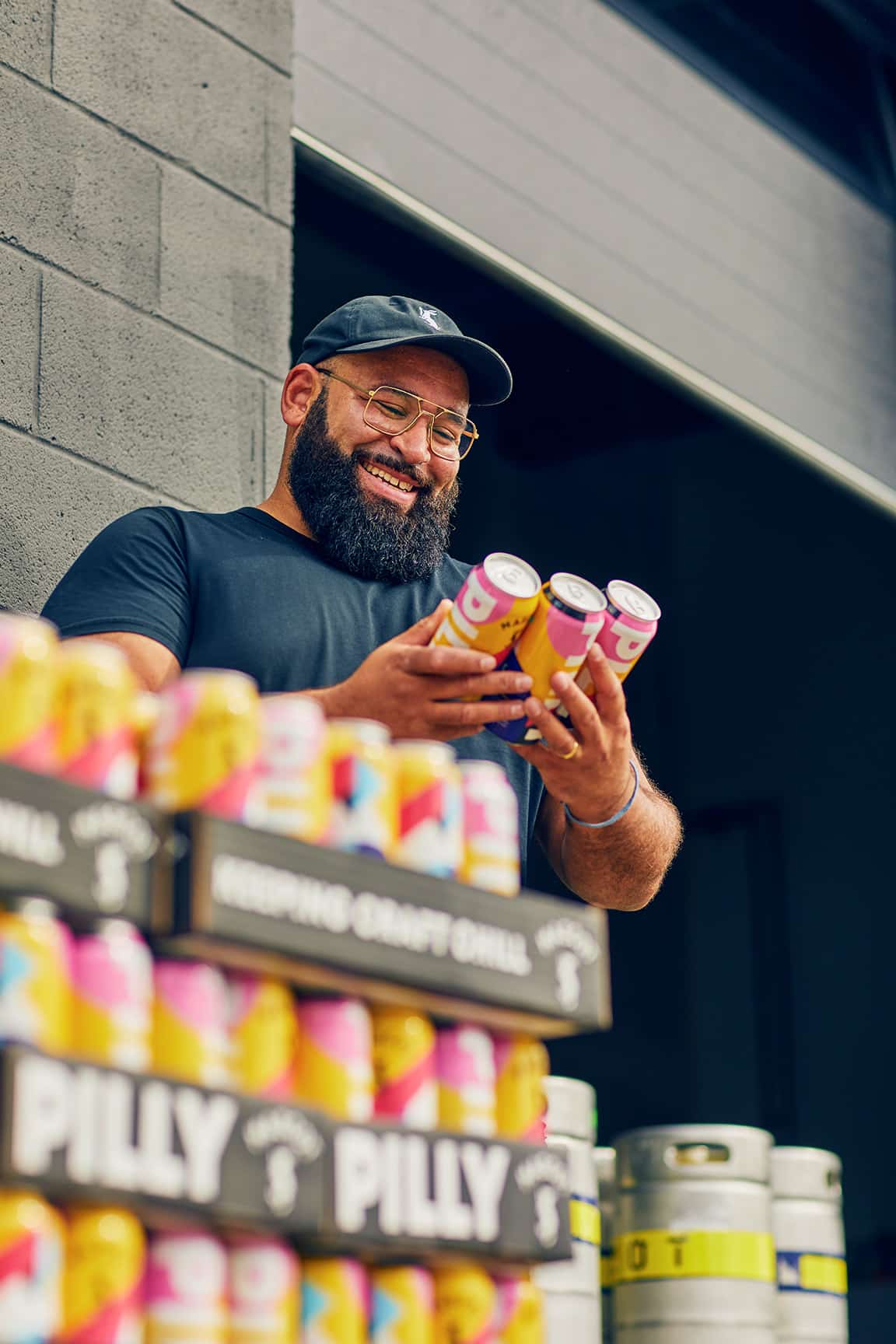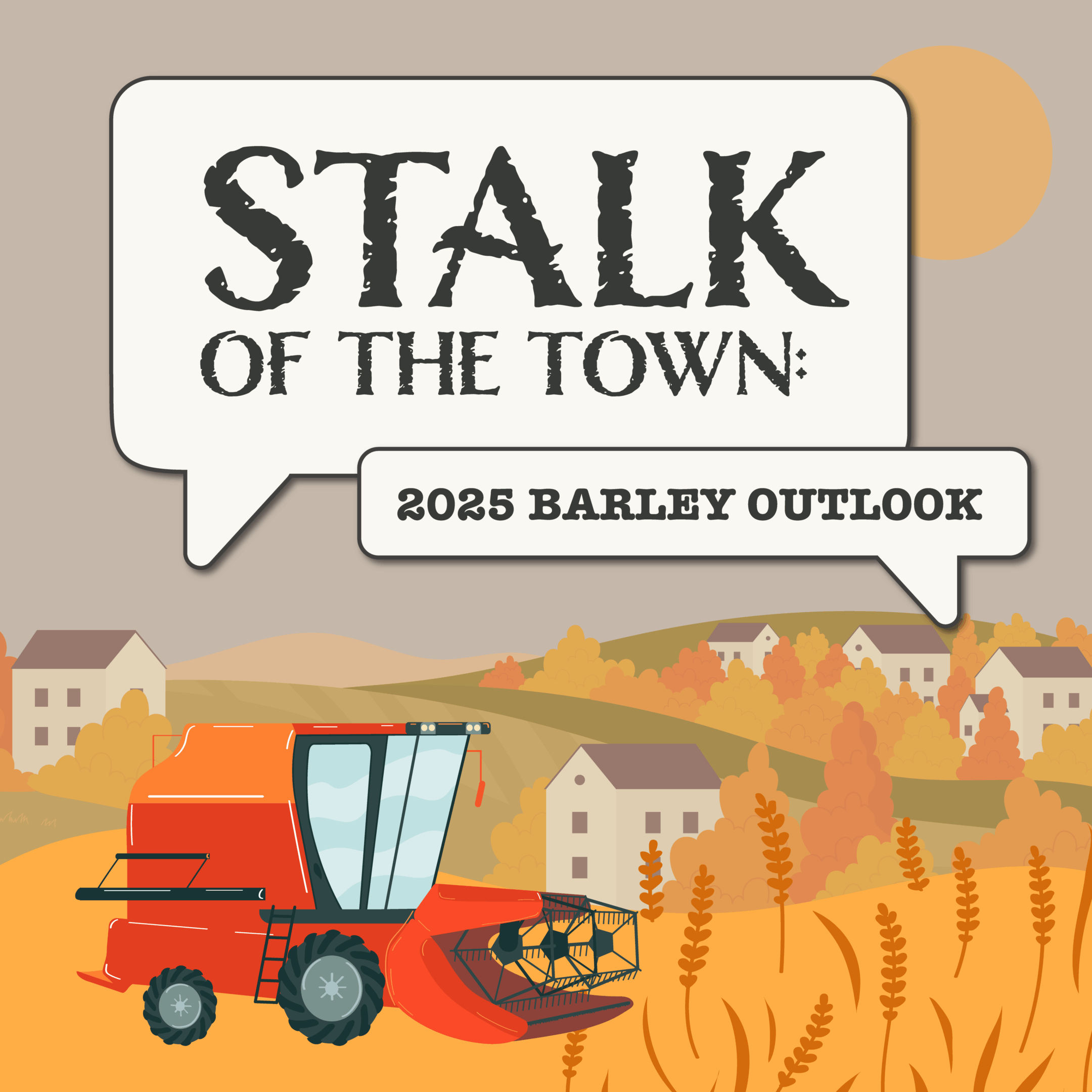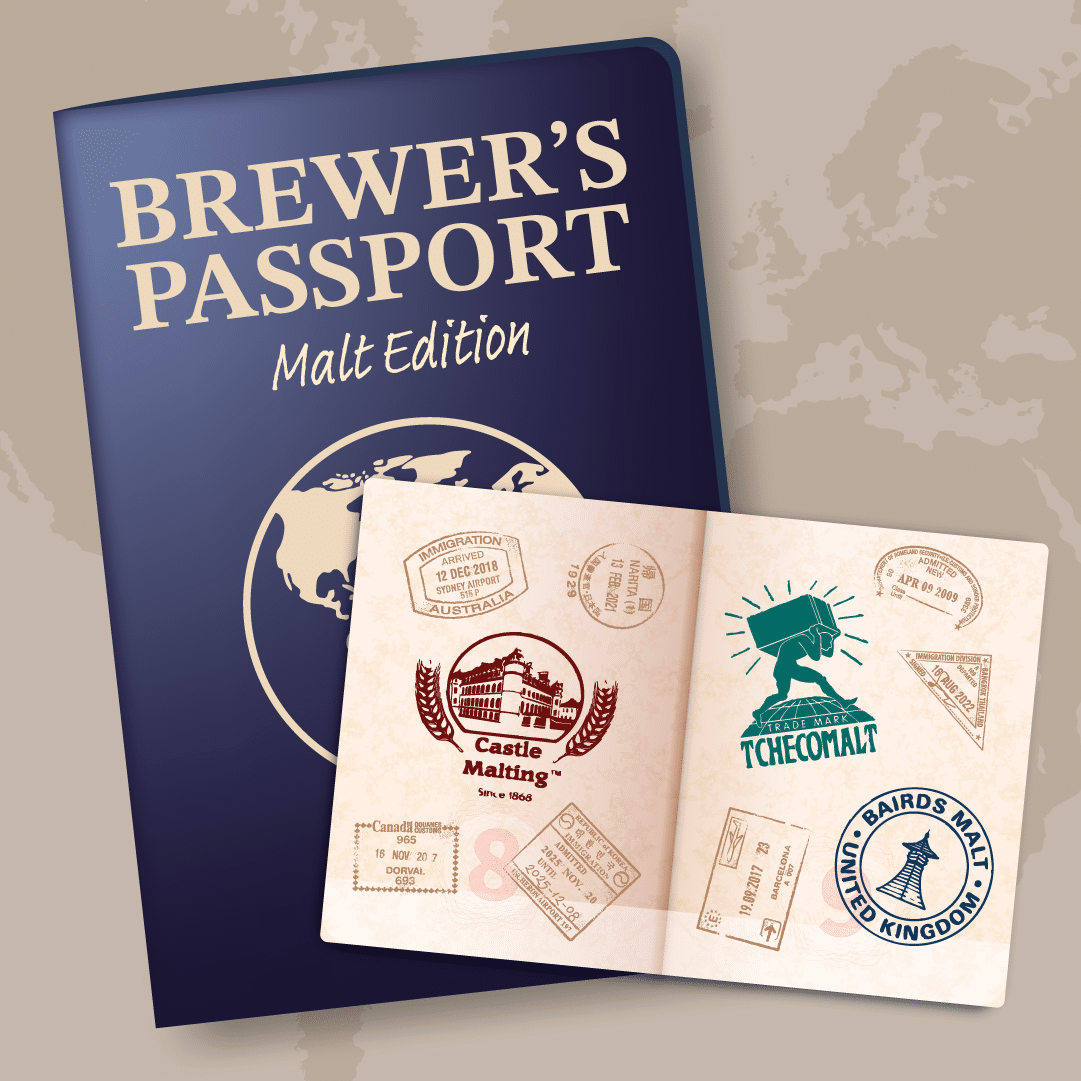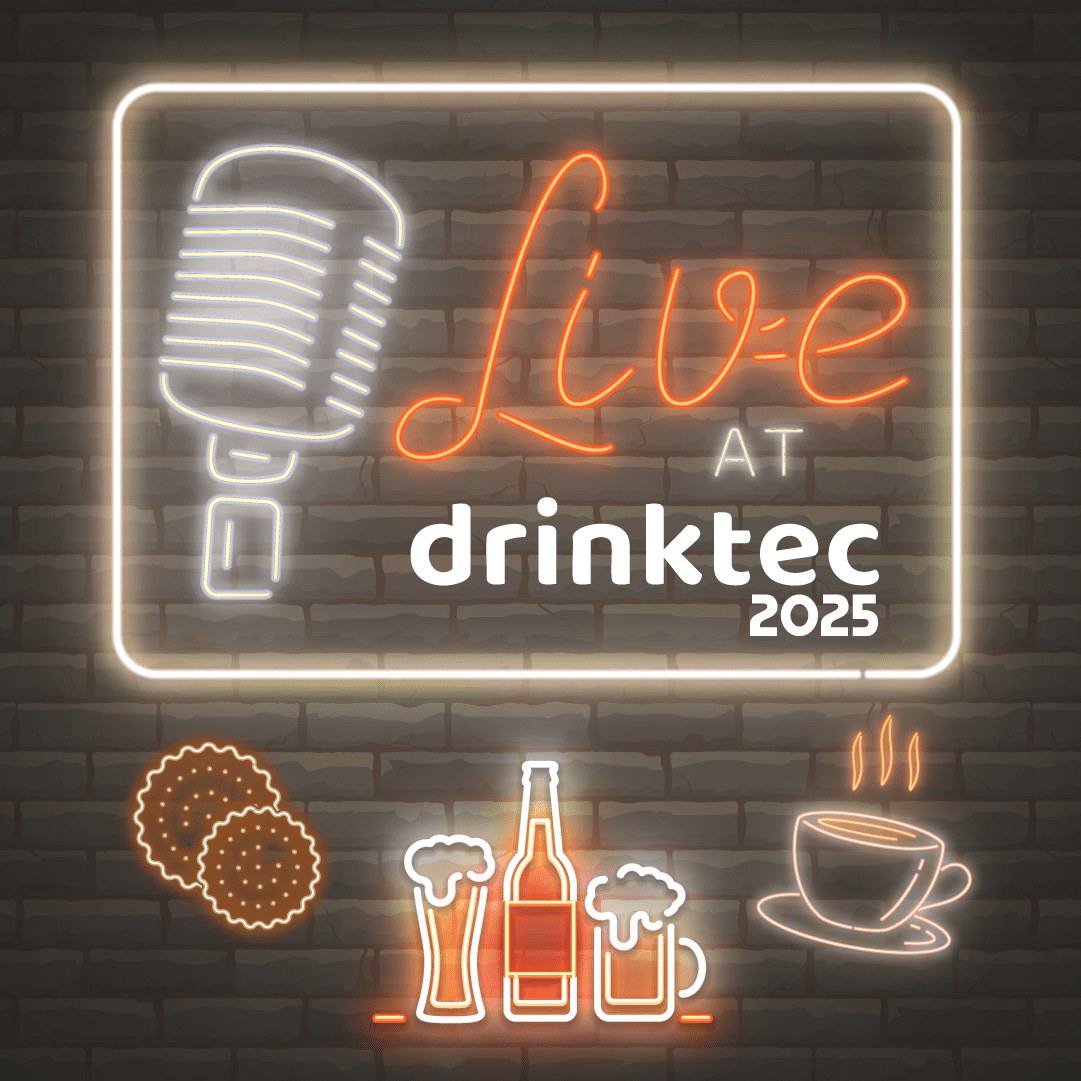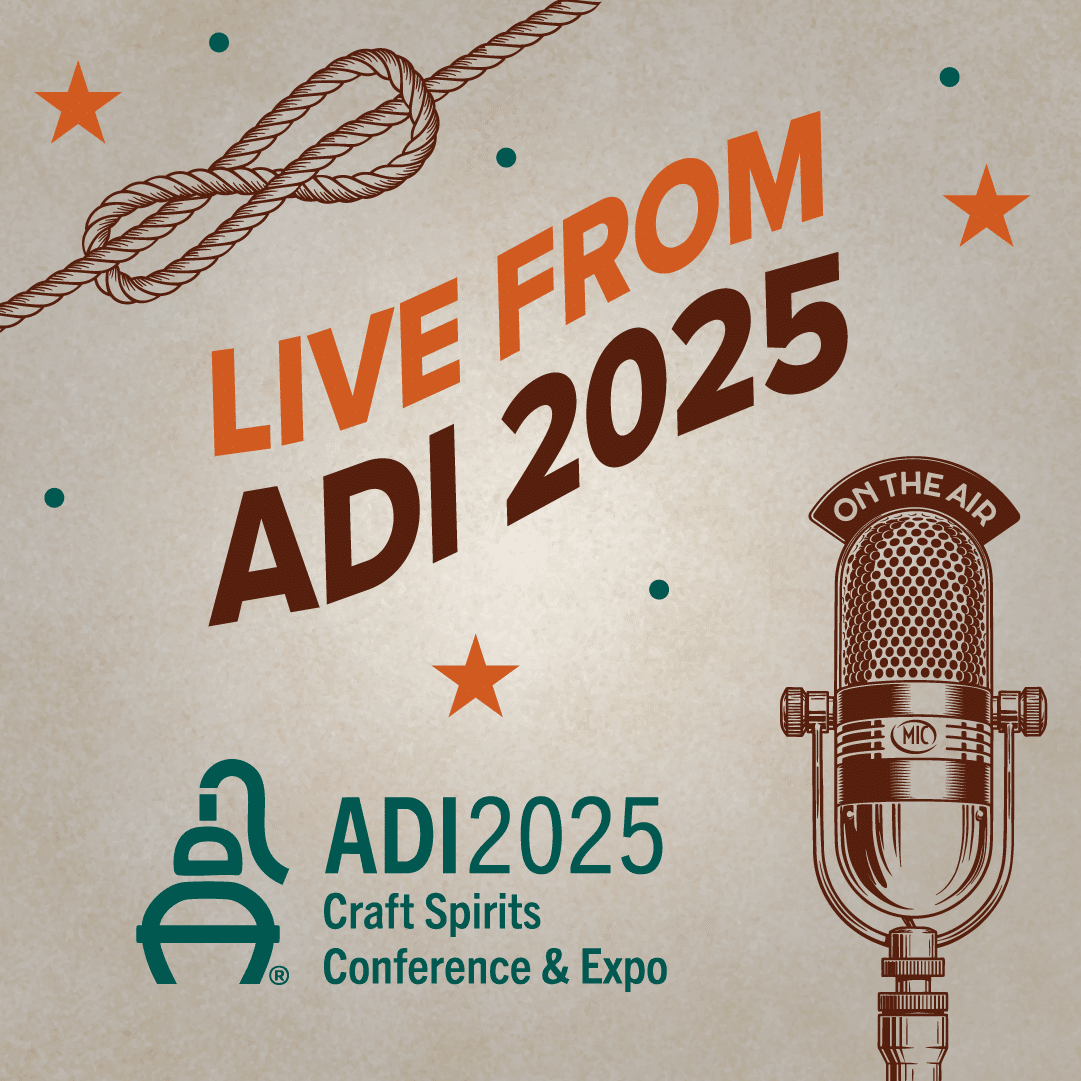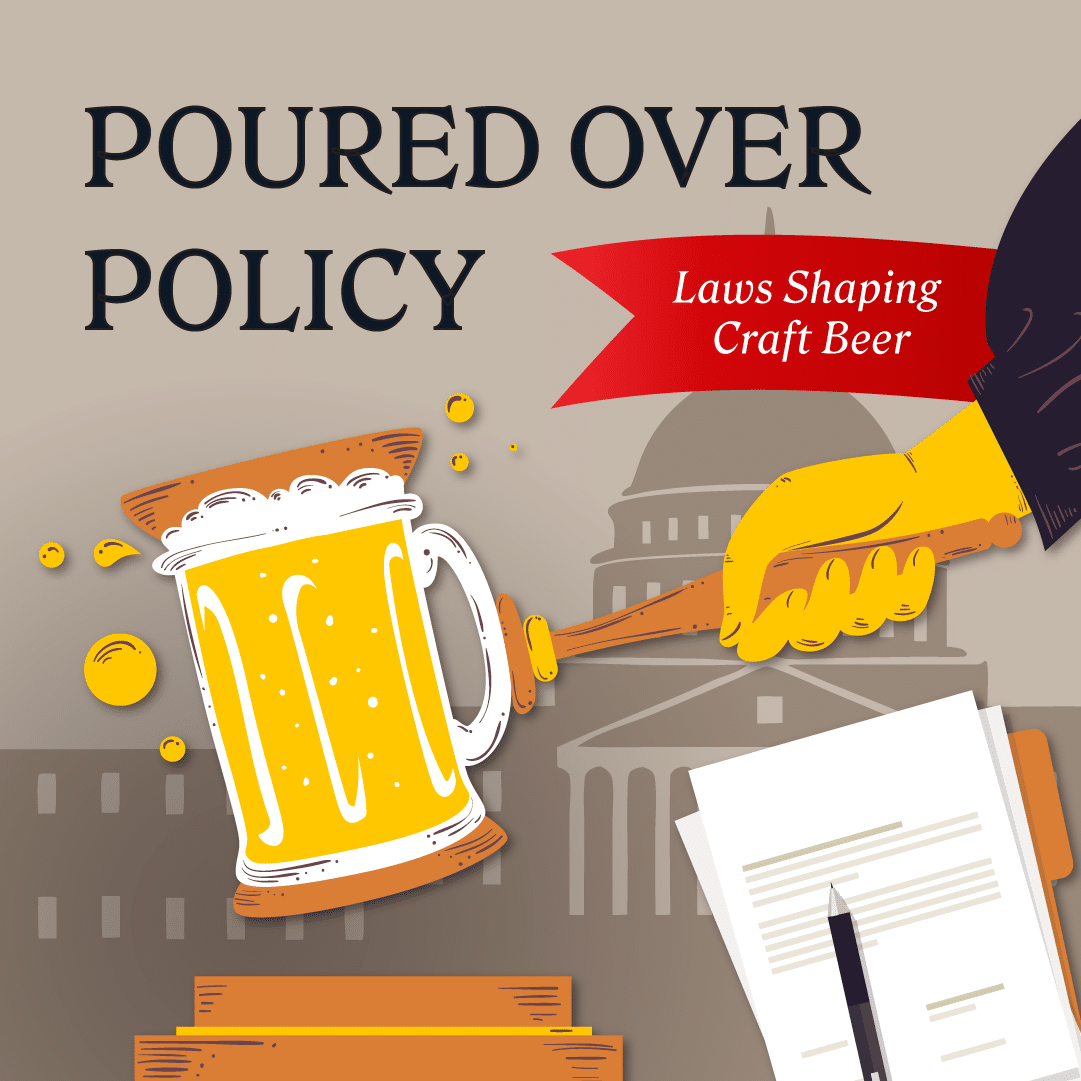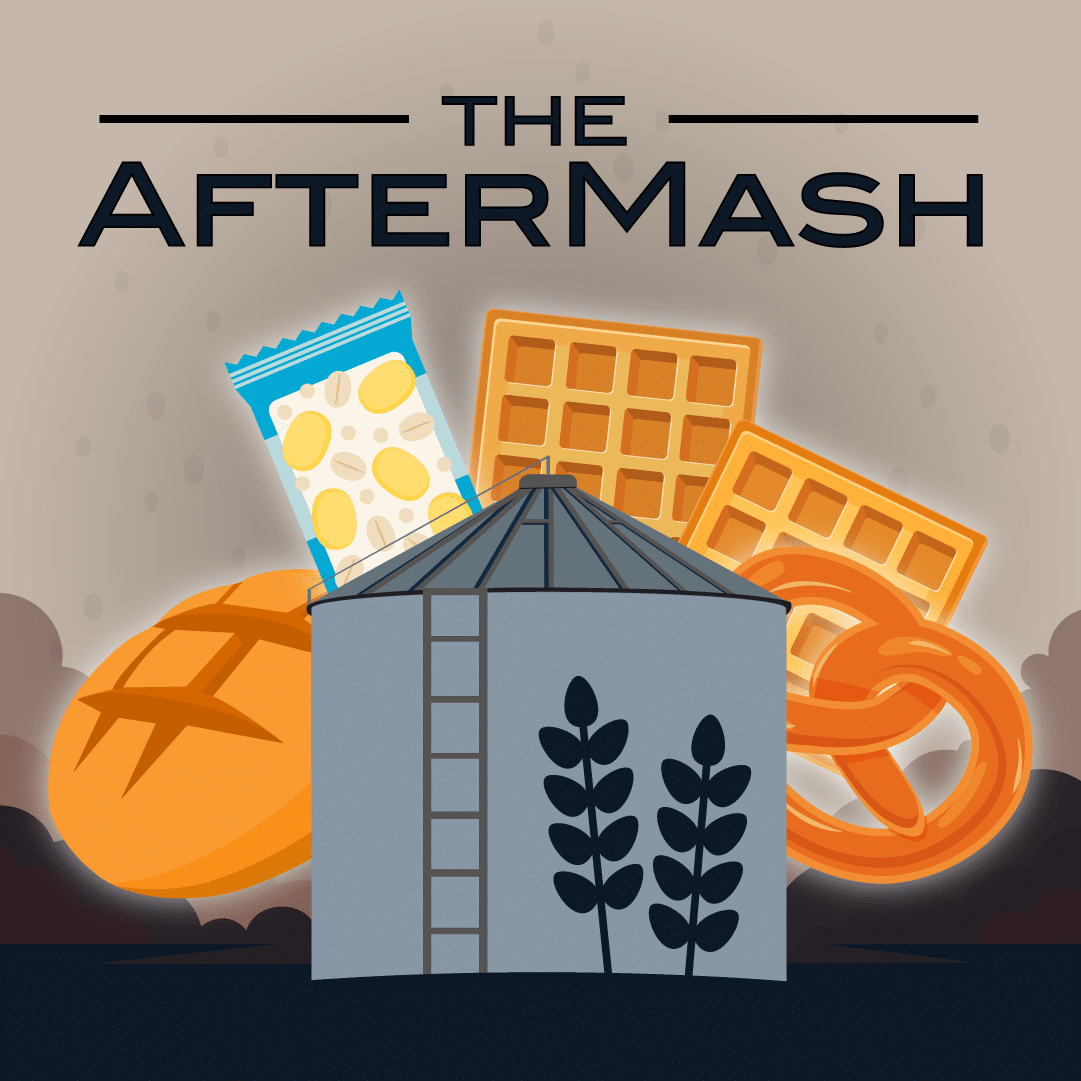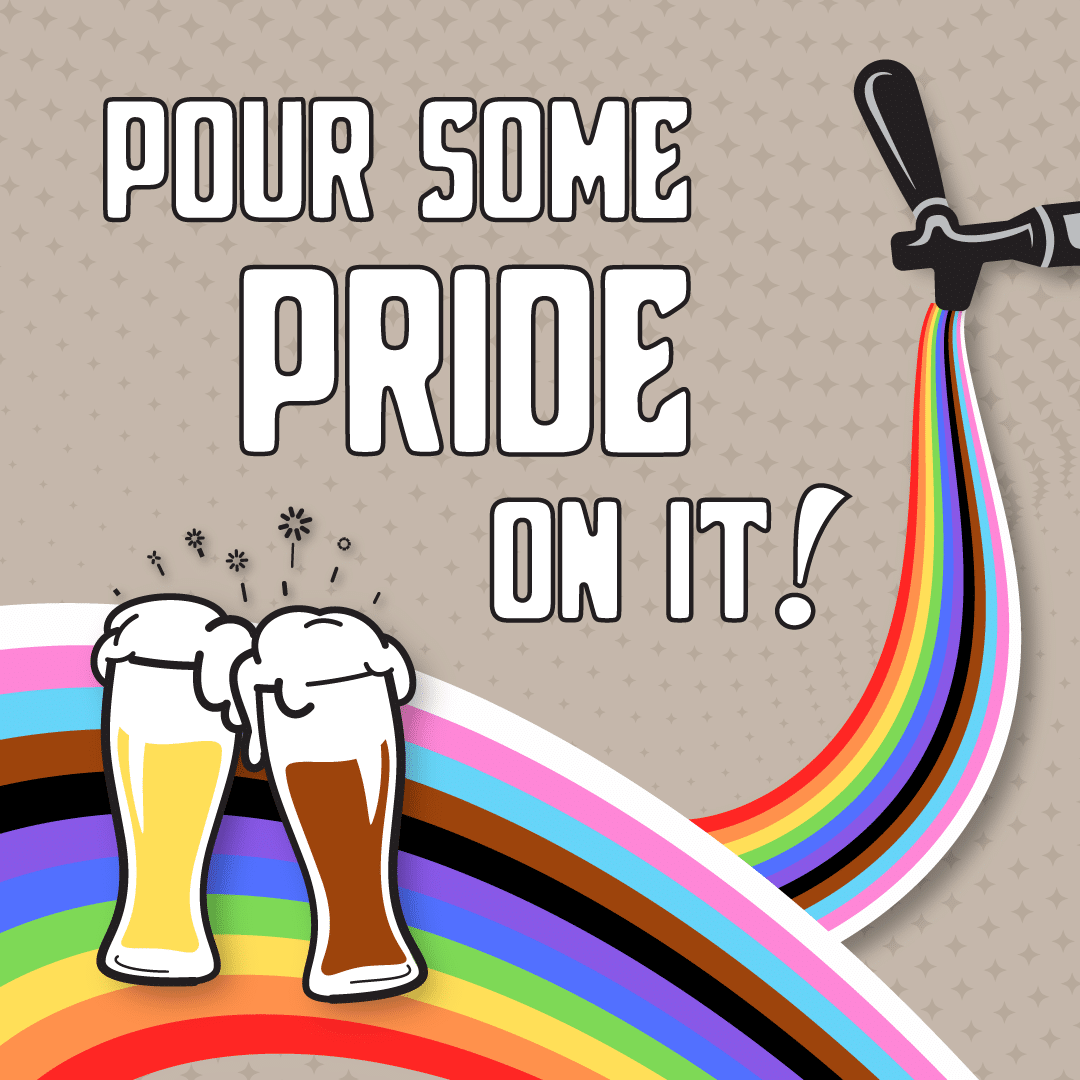
PODCAST GUESTS
Aaron Prothro
Elle Rhodes
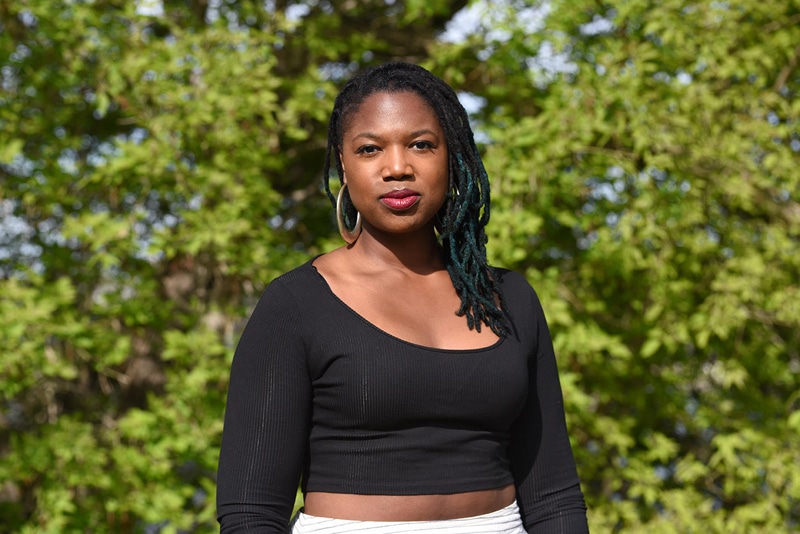
Shaunté Douglas
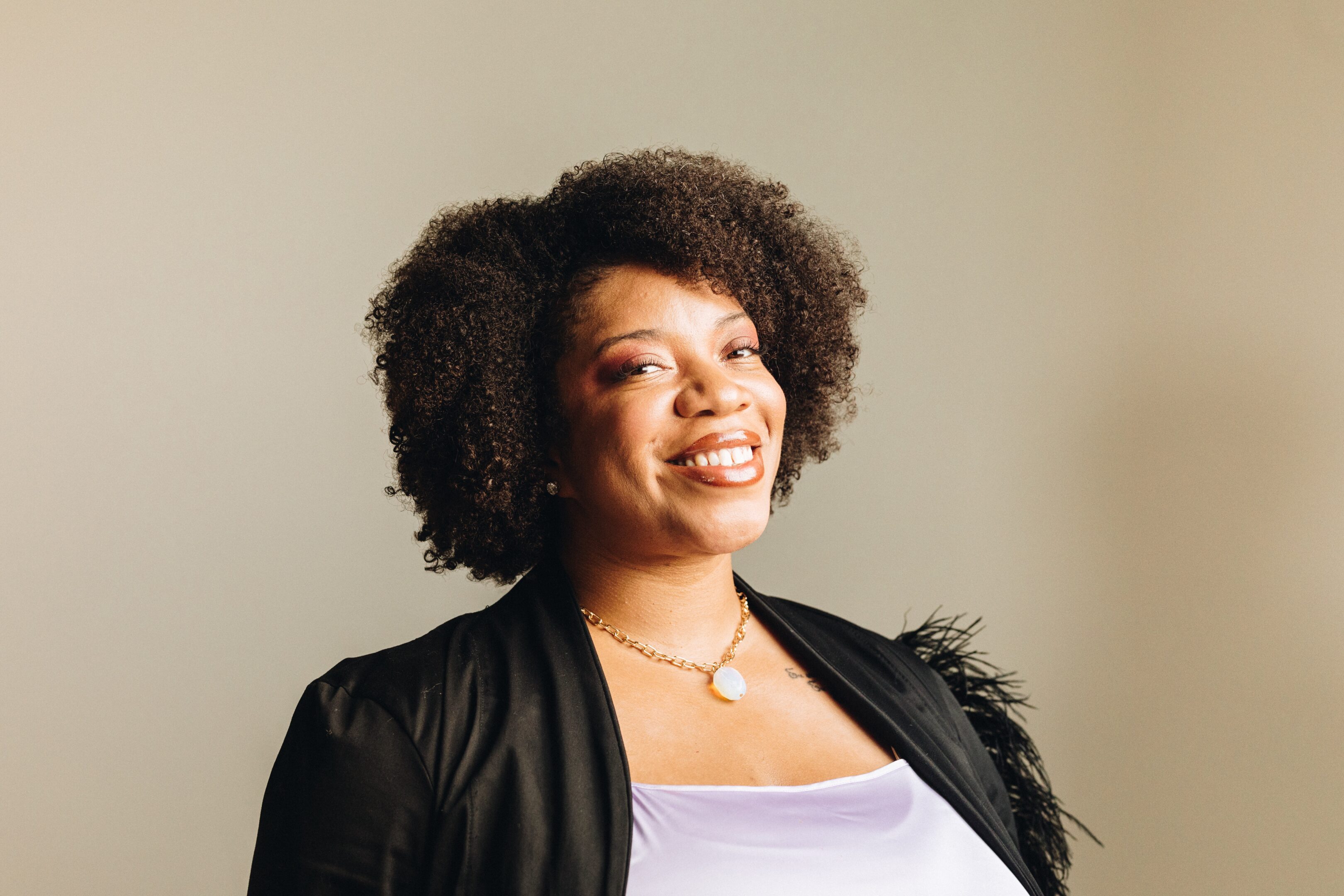
Bri Smith
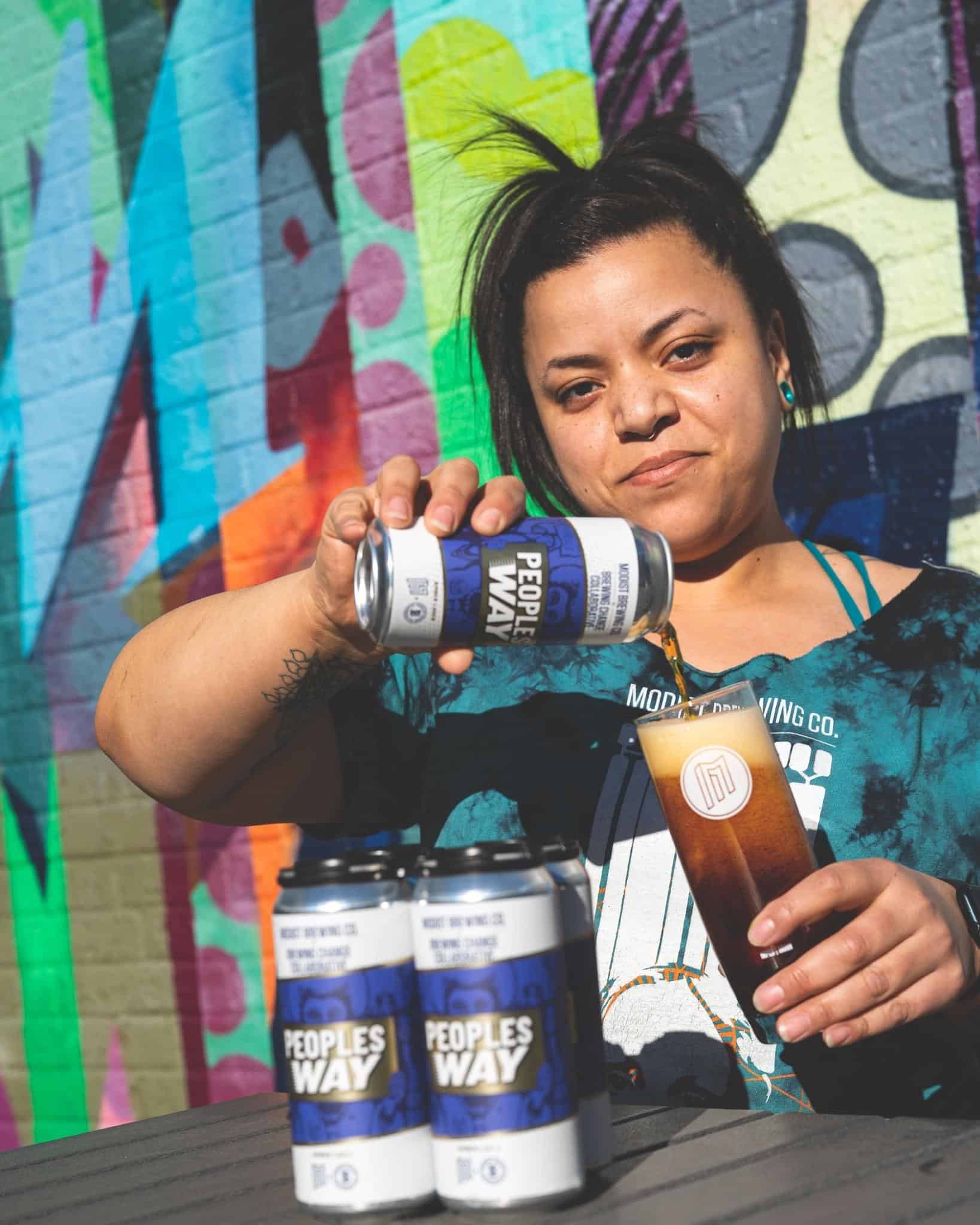
MORE EPISODES
SEASON 5, EPISODE 3: BLACK HISTORY MONTH
PODCAST HOSTS:
ADAM WILSON – TERRITORY MANAGER, COUNTRY MALT GROUP
HEATHER JERRED – TERRITORY MANAGER, COUNTRY MALT GROUP
GUESTS:
AARON PROTHRO – FOUNDER, MASCOT BREWING
ELLE RHODES – CO-FOUNDER & DIRECTOR, BREWING CHANGE COLLABORATIVE
SHAUNTÉ DOUGLAS – CO-CHAIR OF OUTREACH COMMITTEE, BREWING CHANGE COLLABORATIVE
BRI SMITH – BREWER, MODIST BREWING CO. & MEMBER, BREWING CHANGE COLLABORATIVE
Key Points From This Episode:
- Their goals in the industry
- How they empower other black entrepreneurs
- How to create an inclusive work environment
- How you can support black-owned businesses this month and every month
- The Brewing Change Collaborative’s DEI code of conduct
- Their plans for the future
- What change they want to see in the industry
Transcript - Black History Month
EPISODE S.5, E.3
[BLACK HISTORY MONTH]
Heather (00:09):
Welcome back to a very special episode of The BrewDeck Podcast, celebrating Black History Month. I am your host, Heather, and I’m joined by Adam Wilson. Welcome, Adam.
Adam (00:20):
That’s me. That’s me. I’m over here.
Heather (00:24):
You are.
Adam (00:24):
Today we’re lucky. We’re really lucky, actually, to be joined by Aaron Prothro. He’s the founder of Mascot Brewing in Toronto. They’ve actually got three locations throughout the GTA. Aaron will tell us about the challenges he’s faced in the craft beer industry, as well as how he works to empower other Black entrepreneurs.
Heather (00:44):
We are also very excited to welcome Bri Smith, Elle Rhodes, and Shaunté Douglas from the Brewing Change Collaborative, which is an organization that works to foster diversity, equity, and inclusion for people of color in the brewing and beverage industry through advocacy, outreach, and education. They will tell us all about those three steps when we talk to them.
Adam (01:05):
Well, let’s get at it.
Heather (01:06):
Let’s get at it. Without further ado, let’s jump in. All right. We are now joined by Aaron Prothro, the founder of Mascot Brewery in Ontario. Welcome, Aaron.
Aaron (01:19):
Hey, how you doing?
Heather (01:21):
Great. Thank you for joining us today.
Aaron (01:22):
Of course. Happy to be here.
Heather (01:25):
Before we dive into all the questions that we have, can you give us a little bit of history on yourself and the brewery?
Aaron (01:32):
Yeah. I’m an Entrepreneur, been running different types of businesses for the last many years, without dating myself. We started Mascot back in 2015. The problem I found with craft beer, back when I was researching a lot on beer, and wanting to get into the industry, was there was a level of pretension and elitism in craft. I felt that really alienated what I thought craft beer was supposed to be about, especially coming from Nova Scotia. I wanted to create a space, essentially, where I felt like I belonged. So I sought out to open up a brewery, and we got a location down on 31 Mercer Street. It was a really cool spot. We started with a brew pub model. The goal was really to create a welcoming experience. It gave us a great opportunity to learn about our customers, and evolve into more of a distribution offering, where we’re at right now.
Adam (02:35):
So, you guys have… Just for the listeners, Aaron and I work together on a regular basis. Aaron, you have the first location, downtown Toronto, and then you opened up a second location just outside of the downtown court, Etobicoke. When did you open up that one?
Aaron (03:00):
We originally started at 31 Mercer Street, and we got into a short-term lease there that we ended up getting bought out of the last year of that. Then we were homeless for about a year. We found a location in Etobicoke, and we started producing out of here. Then we opened up another tap room on King, which is still there, 220 King Street West. Then we finished at Etobicoke during the pandemic. I was just building it out slowly, and then we just slowly opened up the doors. That was 2020, I guess. We acquired Kensington Brewing a year ago, and that allowed us to grow our distribution. Because the Etobicoke location, though it is production, it’s small scale, it’s a 10 barrel system. We got, with that, a spot in Kensington Market and then the space in Vaughan.
Adam (04:05):
That’s awesome. You guys clearly have been doing something right in an industry that isn’t always right shipping at the moment. So for you guys to be able to have this growth has been pretty incredible, including or most recently, Beer of the Year?
Aaron (04:23):
Yeah, we won Beer of the Year. A couple of weeks before that, we also won Gold at Ontario Brewing Awards. We never really entered any competitions, those first competitions that we entered and we won a couple of awards, which is awesome. We were really happy. It was a great event that we went down to too. So it was really cool to see that people who are in the industry are digging our beers, and our quality.
Heather (04:50):
That’s awesome. Congratulations on that.
Aaron (04:52):
Thank you. Thank you.
Heather (04:53):
That was the Frost Hammer IIP that just won, right?
Aaron (04:55):
Sorry, the Frost hammer won Gold at Ontario Brewing Awards.
Heather (05:02):
Oh, so it was for both.
Aaron (05:02):
Yeah, and Beer of the Year as well.
Heather (05:02):
Adam, I’m going to assume you’re going to go pick some of that up for me?
Aaron (05:07):
We got lots of it ready. We’re looking at hopefully getting it into the LCBO for later this year.
Adam (05:14):
I’ll bring it to Vegas for you, Heather.
Heather (05:16):
You know what I need in Vegas? IIPAs.
Adam (05:17):
Nothing bad can happen there.
Heather (05:22):
[inaudible 00:05:22] get through Vegas. Again, thank you for coming on. This is the first time we’ve done a Black History Month recording, so we’re really, really excited about this episode. We’ve said it before in here, how much representation really matters in this industry. Can you talk a little bit about your mission for empowering Black entrepreneurs?
Aaron (05:46):
Well, the mission for empowering Black entrepreneurship really ties into our goals in the industry. What we really want to do is break down the barriers that craft beer itself creates. We think that that alienates different ethnicities from getting into the space, and we really want to change the perspective of what that craft beer drinker looks like by representing Black people, people of color, disenfranchised people of craft beer, especially with ownership in the industry. As an Entrepreneur, my personal story really went into that. As an Entrepreneur growing up out east, I always was creative because I always playing by myself as a kid and things. I developed that creative spirit. I was very curious and I wanted to develop different things and create different things. That curiosity really manifested into me being an entrepreneur and providing access to people.
(07:04)
I didn’t have a lot of access growing up, and I think being an entrepreneur let me really take control of that, and really take control of my life and my surroundings. I think that that plays into the idea around not trying to get a seat at a table, but building your own table. I’m a big believer in that you have to be the change that you want to see. Especially with the Black community, I think there’s still a bit of an enslaved mentality where people are stuck in the hardships that have happened, which is very valid. But my whole idea is, now what? We have to acknowledge the history, we have to acknowledge that some of these things are still happening, but now what? Entrepreneurship empowered me, and I think business is a great tool to empower people to change their communities. So, that’s how I think entrepreneurship plays into the Black community and empowering Black people
Heather (08:09):
As I write down, “Build your own table.” That was amazing.
Adam (08:14):
I remember the first time you and I sat down and chatted, actually right there in Etobicoke, and had a very similar conversation to this one. I’m from Nova Scotia as well. I know we both grew up probably about an hour or so away from each other. There is a very strong Black community in Nova Scotia. How much of being surrounded by strong, powerful, empowering people give you the chance to really step up and give you the tools that you are showcasing right now?
Aaron (08:57):
Well, I think a lot of my sensibilities really evolved from the East Coast and how I think. The East Coast, it’s always been hard to get by there, and that toughness was really part of my growing up. Now layer in being different, and being Black, being mixed race, and you add a little bit more hardship into that. So from the beginning of the history of Black people in Nova Scotia, they were given a rough go. The maroons, the settlers there, were put into areas in lands that they weren’t able to farm, they weren’t able to generate money off of, and then it just became a cycle of poverty. Seeing that really hit me on a personal level, and seeing how socialeconomic things can impact the whole community of people.
(10:02)
With that though, the generations that come from that, it’s about the mindset. It’s about the mental trauma that you get from thinking that you don’t have choices, and that you don’t have anybody to aspire to, or real leadership in your community. I’m not saying that there aren’t amazing leaders in the community that have helped pull people up there, and it puts a smile on my face every time I go home because I see that things are changing out there. But I think that it’s had a massive impact on me growing out East, and where I’m at here in Toronto, and what I’m doing. I always consider myself an East Coast boy. I never say I’m from Toronto. We definitely want to expand out east with Mascot, that’s a personal goal for mine, and we’re laying the inroads now to do that. But it’s had a massive impact on how I think, for sure.
Adam (10:55):
That’s awesome. It’s really funny you say that because, as an East Coast boy as well, I never tell anybody that I lived in Toronto.
Aaron (11:03):
I love Toronto, but home is home. That’s always been the thing. Nova Scotia has a special place in my heart, but Toronto’s dope too. So, no hate on Toronto.
Heather (11:16):
I just feel like that’s always… I have a lot of friends that are from the East Coast, and that’s it. You are from Newfoundland, you are in Newfie.
Aaron (11:20):
Right.
Heather (11:21):
If you’re from Nova Scotia, you are from Nova Scotia. There’s no in between. It doesn’t matter where you live, that never changes. It’s so rooted. I love it.
Aaron (11:28):
Definitely.
Heather (11:28):
East coast is amazing.
Adam (11:29):
So you’ve got all this experience, you are bringing all this to the table that you are creating. How do you create an inclusive work environment and taproom experience to share to others, to have others who might feel excluded within the craft industry be able to comfortably come and try what this is all about?
Aaron (11:59):
A lot of it stems from my own personal experience in being able to identify those things that made me feel excluded. But inclusivity is a part of the values that we have at Mascot, and I’m a firm believer that you have to operationalize these values in your business and in your business model, and practice what you preach, and you have to systemize it if you want it to be a thing, and to change your culture. So, it starts at the top. I think the people at the top have to make it a business priority to incorporate inclusivity into their business, and making it part of their goals. So when I think about inclusivity in the workspace, we’re dealing with people. Inclusivity is just a word, but we’re dealing with people, and people are different, and they come from different backgrounds.
(12:58)
There’s automatically going to be a bias that people are going to have against people who are different than them. So I think first what you need to do is understand that, let’s celebrate those differences that people have. Let’s shine a light on them. Because not only are you going to make the people who feel different comfortable in the space, but you’re also going to educate your existing people in your organization. So when we think about systemizing some of these ideas to shape your internal culture, you have to look at some of your processes that you have. So how you hire people, how you onboard people, what do you communicate to those people when they’re coming into the workplace? How do we systemize celebrating people’s differences when they come into the workplace so they feel more comfortable and feel more valued? Those are all things that we do to create an inclusive space.
Heather (14:04):
This can also lead into my next question. What are some particular challenges you faced being a Black-owned craft brewery in Canada?
Aaron (14:17):
As an Entrepreneur, it’s challenges. You’re bombarded with problems on a day-to-day basis, messed up shit is happening to you on a day-to-day basis, so you become desensitized to a lot of things. One of the challenges, if I’m going to think about it more, I guess would be the fact that the industry never really took us seriously. That’s because we don’t fit into a typical craft beer mold, or what it’s supposed to be. We’re industry outsiders. I never say that I’m… We’re not an industry brewery and I’m not an industry person, but we still brew dope beer, and I think we can put our beer up against anybody in the industry. We want really quality product. It used to bother me in the beginning, but I think now it’s become one of our biggest strengths. The fact that we think differently allows us to become an authority with how we speak to our consumer segment. So that difference is something that originally bothered me, but now is something where I’m proud of.
Heather (15:27):
That’s fantastic. Tell me a little bit about the collaboration that you do. The Black-Owned collab.
Aaron (15:37):
So that was something that was started really out of the whole idea around entrepreneurship, and empowering people to build their own table. That’s really what the Black-Owned collab is about. The onset of it was really to collaborate with other breweries ’cause of the industry that we’re in, and see how their Black experience shaped their perspective of how they approach craft beer in their own locations. But there really isn’t any other Black-owned breweries to collaborate with in Canada, so I went to the US. We have one coming up with Moor’s-
Heather (16:17):
Oh, nice.
Aaron (16:19):
Brewing from Chicago. So, that’s the next iteration. I try to do one a year. It’s really to show representation, and to shine light on those breweries, and to say, “Hey, Black people are doing shit in the beer industry. You may not see it in Canada, but it’s really big in the US.” I think it’s important to show that representation of ownership because that is going to empower other people and inspire them to want to do that too, ’cause they see themselves represented better in the space.
Adam (16:50):
Let me ask, between what you’re saying in terms of just the empowerment and getting people to be like, “Oh man, this guy has done it, I can do this too…” To tie it all back together, the work environment too, a question popped in, just in regards to how that person of color that this industry has not necessarily kept out, but because of how inclusive this industry can be, how tough is it? Or what would you say to a person of color that’s trying to actually break into the industry without that experience? ‘Cause really, it comes back to the cyclical nature of that again.
Aaron (17:39):
Well, there’s two different things going on here. Craft beer is a very technical thing, and you need experienced people to be able to produce at the quality and the standards that you’re going to set for your business. So regardless of who they are, I’m not going to hire someone who’s not qualified. You got to be qualified to make beer. But that being said, there’s lots of different jobs where you don’t need a ton of experience that you can start off. So the first is the representation to inspire people’s curiosity to say, “Hey, maybe I can do this.” Then you give them a chance. You got to start at the bottom, just like everybody else. But give them a chance, where before maybe they wouldn’t have been given that chance just to start at the bottom.
Adam (18:34):
That makes sense.
Heather (18:36):
As Adam and I talk over top of each other.
Aaron (18:42):
I think people confuse this too. It’s okay if you don’t hire a person of color if they’re not qualified to do a job. That should never be a thing. That being said, people should be given a chance to be a part of something, and not feel like they’re excluded because of how they look. So if you have an entry level job that a lot of people could do, that you’re really looking for more of someone’s character and their personality, they don’t need really the hard skills, the technical skills yet, that can all be taught. Just giving them a chance to come in to that environment and work, rather than saying, “Oh, they don’t look like someone who I want, or I think belongs here,” and ruling them out.
Heather (19:44):
You don’t have to hire the white dude with the beard and the plaid shirt?
Aaron (19:50):
Exactly.
Heather (19:52):
Not to generalize brewer industry at all.
Adam (19:59):
[inaudible 00:20:00], right?
Heather (20:01):
I’m what? Sorry, Adam. As we’re obviously in the middle of Black History Month here, how can people support Black-owned businesses in our communities?
Aaron (20:13):
Well, just so you know, we’ve got a collab, because I’m going to plug this now with Nyarai Cellars. Have you guys heard of them?
Adam (20:22):
Who’s that?
Aaron (20:22):
Nyarai Cellars?
Adam (20:22):
No, I don’t know.
Aaron (20:26):
He’s one of the only Black wine makers in Canada, and he’s based out of Niagara. So we’re doing a beer and wine hybrid called Brewsé. So, we’re doing a launch party for that on the 23rd of February. That plays into the whole support, come out and support some of these events that a lot of the Black businesses are putting on right now. I think you can support by learning more about them. Don’t be afraid to come and be a customer, spend your money in the establishments. That’s how you support.
Adam (21:08):
With that said, how do we get off the page of just having this conversation during Black History Months? I find it a fallacy for everybody on the entertainment, social media, podcasting, whatever source you’re going for is, let’s shine this spotlight on whatever the month may be, and then we don’t talk about it again for another year. I don’t know if you know the answer to this, but how do we keep the discussion going, and how do we keep things as relevant as possible?
Aaron (22:00):
I get when people say, “Black history is all year,” and I understand where people are coming from when they say that. I think Black History Month is an opportunity to learn, and hopefully within that learning, it’s going to impact how you behave for the rest of the year. I think it’s just going to give you more opportunities to learn more, so you can become more comfortable, and break down some of those barriers, some of those walls that you might’ve had up, some of those biases that you might’ve had up. That’s why I love Black history because an opportunity to do that and showcase that, and that in itself is what’s going to change you as a person, and change your behaviors. I’m all for Black History Month. I’m happy that it’s here. It gives the opportunity for people to learn more, and I think that learning impacts how they behave for the rest of the year, and years to come.
Adam (22:56):
Awesome. That’s so awesome. How do you celebrate Black History Month? Or, do you?
Aaron (23:03):
How do I celebrate? Well, we usually do a couple collabs. We’ll give support to other initiatives by donating beer. But, every year we’ll do a collab for Black History Month. That’s pretty much how we do our thing, and we we’ll represent different people in the community.
Heather (23:23):
So, when is the launch party for the Brewsé?
Aaron (23:27):
The 23rd of February.
Adam (23:29):
Now it’s at… Sorry, what location [inaudible 00:23:33]?
Aaron (23:32):
37 Advance Road. It’s our Etobicoke location.
Adam (23:35):
All right, awesome. Fantastic.
Aaron (23:37):
This will be coming out… Is this out?
Adam (23:39):
Yeah, this will be coming out before that, so we are in a good place to send people your way for that. Before we wrap things up here, what else is happening at Mascot? Obviously, you just had the expansion with taking on the Kensington Brewery. So, What’s going on? What else do you want to plug?
Aaron (24:03):
Listen, we’re really trying to increase our distribution of our beer, give people the opportunity to buy it in multiple distribution touchpoints. LCBO has been a super supportive partner in that. We’ve just launched our Lightweight Lager, which is a light lager. Our Juicy J, which is a juicy IPA. In March, we’re launching our Watermelon Beet Sour. So, that’s our main plan. We’ve reformatted our distribution with TBS, and we are looking for more places to sell our beer, and spread the gospel. That’s what we’re focusing on this year, distribution.
Adam (24:45):
Well, the beer is fantastic. The logos are also real fantastic. Your Coco Beware was pretty phenomenal. Loved it.
Aaron (24:58):
Thank you. Thank you. Yeah, we’re pretty proud of that one as well.
Heather (25:00):
Yeah, we were all fawning over all the cans earlier.
Adam (25:06):
Yeah. Listen, Aaron, thank you so much. Greatly appreciate you taking the time to share your story, and your experience, and expertise with us.
Aaron (25:17):
No, thank you.
Adam (25:19):
We can’t thank you enough for it, my friend.
Aaron (25:22):
Anytime. I appreciate the opportunity, guys.
Heather (25:25):
We are now extremely lucky to be joined by Bri Smith, Elle Rhodes and Shaunté Douglas from Brewing Change Collaborative. Welcome.
Bri (25:37):
Thank you for having us.
Elle (25:38):
Thank you. Thank you for having us.
Shaunté (25:39):
Thank you for having us.
Heather (25:41):
Well, as I said, we’re very excited to have you on. Before we fully jump in talking about Brewing Change Collaborative, can you tell us a little bit about yourselves? Bri, do you want to start us off?
Bri (25:52):
Sure. I am Bri Smith. I am currently a Brewer at Modist Brewing in Minneapolis. I’m also the first professional Black woman brewing in the state.
Heather (26:04):
Amazing. Elle, do you want to jump in?
Elle (26:08):
I’m Elle Rhodes, Co-Founder and Director of Brewing Change Collaborative. Started this organization with a couple of other people almost five years ago. Have worked many jobs in the industry, been in the industry for almost 15 years, from beer to spirits, and now still with the nonprofit working on that. One of the only Black people in the industry when we started this five years ago, so I’m excited that we’ve come this far and keep going.
Adam (26:45):
Shaunté, how about yourself?
Shaunté (26:48):
Hi, there. My name is Shaunté Douglas. I am new to the industry on the service side, but I’ve always been something like an enthusiast over the past couple of years. I’ve been a member of Brewing Change for three and a half, four years. I am also leading our Organization and Engagement committee, so definitely representing the organization outside and internally.
Adam (27:20):
Awesome. Okay. Let’s start with the obvious. What is Brewing Change Collaborative, and how did it get started?
Elle (27:31):
We started the nonprofit, as I said, about five years ago. This year will be our fifth year anniversary. The mission is to foster diversity, equity, and inclusion for people of color in the brewing and beverage industry through education, advocacy, and outreach. That started by a number of people’s different experiences as being the onlys, or the unicorns in the industry. We are in Minnesota, but also just in the industry at large, there’s a real serious lack of diversity. So, we started BCC as an answer to that.
Heather (28:06):
That’s amazing. How many members are currently part of the Collaborative?
Elle (28:11):
At our very first meeting, we call it the OG meeting, we had 10 people. Now, nationwide or internationally, we have 1500 members. But attending regular participating members, I’d say we have fluctuating around the 40 mark.
Adam (28:35):
Those 40 are all based in the Minnesota area?
Elle (28:40):
Yeah.
Adam (28:40):
But 1500 in how many years, five years? That’s crazy.
Elle (28:44):
Yeah.
Adam (28:44):
Awesome growth.
Heather (28:45):
That’s a huge growth.
Elle (28:47):
Those are people that consider themselves members, and want to participate, and be engaged, but don’t necessarily have the ability to be here with us in Minnesota.
Adam (28:59):
Right. Now, is there plans for local chapters throughout the states?
Elle (29:06):
There are no plans, but there have been discussions. So, it’s in the future.
Heather (29:12):
So, stay tuned.
Elle (29:13):
Yeah. Yeah.
Adam (29:16):
That is an amazing mission statement, really. How does that come about? How do you go from not having anything, especially within the industry, but up to 5, 10 years ago, to coming out with this mission statement and acting upon it in such a strong way?
Elle (29:46):
Well my personal story, a shorter version, is being told and also realizing at the same time that I was one of the only people out there in the industry in our area. I was told that I was the only Black person involved in beer in Minnesota at the time, which was 2014, 2015. It hadn’t hit me until then that that was the case. It took me aback for sure. Then coincidentally, at the same time, a good friend, Ramsey Louder, who’s a co-founder, was coming back from Michigan to start a brewery and a project with some other people, and he said, “I want to bring our people together. Where are we?” I was like, “This is it, and this is what we’re dealing with. So if you want to help me change that, I would love that.” That was the impetus of starting this, and it became the nonprofit, and grew from that, as just means of trying to accomplish our goals of not being the only ones in a space, and making places inclusive, and breaking down the barriers that are keeping us from being in the industry.
Adam (31:06):
I have a question for Bri here then. Bri, did you get involved with brewing because of the group? Or did you end up with the group after you had gotten involved in brewing, and found out about it through that?
Bri (31:28):
I started brewing after I joined BCC. I’ve been brewing for… Well, I’ve been at my current job, where I started brewing for the first time, for three years. Before that, I was serving in the restaurant industry, and I was working at a brew pub, and that’s when I found out about BCC. So I’ve been in BCC for about four and a half years myself, I believe. So, connections and interests definitely grew within the group.
Heather (31:55):
Shaunté, how did you hear about the group?
Shaunté (32:00):
I had the pleasure of working with a few people in the food justice, nonprofit side of things. So throughout that work, I met a couple people who knew a couple people, and told me about this cool thing called Brewing Change, and invited me to a meeting. I want to say that was 2020. Exactly, summer of 2020. So, I’ve been a part of it ever since.
Elle (32:30):
Shaunté was one of the very brave members who decided to join us at a social event that involved traveling quite far out of the city. So, I always applaud her for that. That was pretty brave.
Adam (32:43):
That’s awesome. I want to deep dive a little bit into this, into your code of conduct here. I guess that’ll help us explain what you guys do. So if we could start with, what kind of outreach projects do you guys work on?
Shaunté (33:01):
Yeah, I’ll talk about that a little bit. Elle mentioned travel, so a lot of it consists of us really fostering relationships in the industry. Whether that be visiting different breweries and distilleries in the state, and having them give us informational opportunities, and we do the same thing for them in exchange, that’s one of our top opportunities to really engage as an organization and have people get to know us.
(33:35)
Secondly, through our events. We have several events throughout the year, whether it be beer releases. We just had one at Modist, and those types of things are open to the public, and people can come through and learn more about Brewing Change and explore what we’re about, learn about some of our members. We also travel throughout the state, and sometimes we go to conferences. We have members of our organization that are available at certain conferences throughout the country, and they can speak to their experience there, whether they be podcasters like yourselves, or brewers representing their own industry. So I think that we’ve done a really good job so far just spreading our wings in terms of outreach. Elle, you can continue if I missed anything.
Elle (34:28):
Yeah, I think a large factor in starting the organization was very social, and creating safe spaces and connection amongst our own people. I’m always saying that BCC is an insular group. We are here, as we have a face that everyone can participate in and engage with, but the support and the function of the group is for the members internally, and to be able to support them, and educate them, and provide opportunities, and things that wouldn’t otherwise be available on their own. So we’ve done outreaches, we do field trips, and things that are very social in manner. But then we also do educational sessions, and we’ve started partnering with different organizations to provide actual education in terms of entrepreneurialship, brewing and technicalities, and then working on developing that side of what we can do.
Heather (35:33):
Touching on that educational side, can you tell us a little bit about the consultation work that you do as well?
Elle (35:39):
Sure. We have come across a number of, especially locally, and I’m sure you’re perhaps aware of issues within the industry, be it with racism, be it with misogyny, be it misconduct or any of those things, we’ve come across a couple of issues locally where members or people who would become members had issues at different breweries or employment places, and needed some consult, and then we were able to advocate for them in those situations. But we’ve also been able to help different breweries and other companies navigate how to responsibly and equitably hire, how to foster and support their employees as we went through, obviously, the pandemic, and also with the murder of George Floyd. There’s a lot of fallout and a lot of emotional support, as well as just being able to support the different scenarios and employees that you have in a space. We’ve been able to be helpful on that. We’ve also consulted with people on their label designs, and beer names, and other procedural business things.
Adam (37:08):
So, how often do you guys do beer collabs?
Bri (37:11):
I couldn’t give you a good number on that. I’d say probably a few times a year. This is, I believe, specifically with Modist, the second or third collab that we’ve done. It’s usually a brew approaching BCC, that is how that comes up for us to do these collabs. I don’t know that we are often the ones seeking out the collab happening. But I was excited, ’cause I wanted my worlds to meld, and that was an obvious way for me, was to do a collab with my workplace and my favorite nonprofit.
Elle (37:57):
Talk about the vision behind that recent collab, which just happened. We just brewed that beer, and just the release last week.
Bri (38:05):
That beer is called Peoples Way. It was a collab specifically for Black History Month, and it is in honor of George Floyd Jr and Ted Mack Sr, the first Black American brewery owner in America. His beer was called Peoples Beer. It was a lager. The beer that we brewed is an amber lager, and People’s Way is a space in George Floyd Square for people to remember the tragedy that happened in our city just a few years ago. So, that was my way to create an homage to Black beer and a local tie-in brand.
Heather (38:45):
I love that. Can you let us know where that’s available? Is that taproom-specific? Can people pick it up on the shelves?
Bri (38:52):
It is available on the taproom right now. I don’t know that it’s in any liquor stores, but there are four packs that you can purchase in the taproom to go. If you have a favorite liquor store, you can ask that your sales rep could get that beer in there, and maybe we can be on some more shelves.
Adam (39:08):
Love it. I absolutely love it. Tell me what changes you would like to see happen in the industry?
Bri (39:21):
I think I am one of three Black women brewing in the state of Minnesota now, but I was first, and it was really cool to see growth happening and change moving in a more diverse direction. But that is only so much, there’s still lots of pushback from just people who see race as a political statement, and will come out and say, “Keep you beer out of my politics,” or whatever. It’s not really a political statement just for people to be welcome into a space. So I just would like to see more people that are in smaller places that can rock the boat by supporting more diverse groups, maybe by hosting a BCC events doing so, so that more people feel more inclined, and safe, and welcome in smaller spaces.
Adam (40:15):
That’s awesome. I’m a firm believer that there would be no politics in inclusivity if things weren’t exclusive towards certain people. So I love the fact that the organization stands up for that, and makes that very well known.
Heather (40:36):
Can you offer a little guidance on diversity, equity and inclusion code of conduct? I know this is some consultation work that you do as well. Can you give a little bit of what you want to see in these codes of conduct?
Shaunté (40:56):
Sure. It’s mainly just a framework for a lot of these public spaces in their hiring policies, and also in just our taproom interactions. A lot of what the discrimination that people are facing, and the very public admonishment that certain people of color have to deal with when interacting with these spaces, that that’s something that these breweries and these entities, if they say that they’re about change, and if they put certain statements on their beer, and in their taproom, and on their doors, and on their windows, then we want to make sure that they’re really about that. So in terms of our educational consultations, we’ll have open dialogue and conversation, and be able to really build out a framework, and ask some questions, and really get people thinking about how the industry has been biased towards a large group of people for a long time, and how that’s historical and we can change that, but we do have to have a united front in going about it.
Heather (42:15):
I do have to say, it’s one of the first things I look for when I go into a brewery. Is a user code of conduct on your door? Do you say that you’re a welcome safe space for everyone, and do you prove that you’re a welcome safe space for everyone? Those are the breweries that I want to give my money to.
Shaunté (42:28):
Absolutely. It really has to be… I feel like you have to see it. As someone who works on the service side of things, it’s really important that, when I walk into another brewery, that I see other diverse people that are serving the beer as well, that I feel welcome, and don’t feel like glaring eyes on me. Or even by the music, if the music seems like it’s going to be something that’ll turn certain people off, these little things are important. Everything from how people can get into the bathroom, to the experience they have at the counter, whether the company is as diverse, because every place can’t be the most diverse in the world, but it does need to be a welcoming and safe space. So, that’s definitely something that we’re pushing for at Brewing Change.
Heather (43:23):
I 100% agree.
Elle (43:26):
At our first retreat, we had an experience where the employees of the taproom were very excited that we had come in there. Then within 20, 25 minutes, the whole place had cleared out,
Shaunté (43:38):
Not even even 20, 10.
Elle (43:41):
So it was like they were happy to have us, but apparently the community wasn’t, and they weren’t ready for us, which was a group of about 20 BIPOC people. Also, BCC is not just for Black people, it’s for all people that are people of color, and anybody that identifies that way. But either way, showing up in a colorful rainbow array definitely scared everybody else out of that parade.
Heather (44:04):
Jesus.
Elle (44:09):
So being about, and not just posting it on a window… Also, especially after George Floyd was murdered and people were reaching out and throwing donations everywhere they could, I was following up on that saying, “What are you actually doing? Thank you for the donation, but what other than money are you doing? Or, in your house? Is your house good inside? Are you a place that I could send and advise somebody from BCC to go work, or visit, or any of those places?” I want to make sure that that’s priority as opposed to, “Thank you for your check.”
Adam (44:42):
That’s amazing. How are you guys funded as a nonprofit, and where does that come from? How do you guys continue to keep going?
Elle (44:54):
We have been blessed to have received donations from the beginning, from local partners and individuals who believe in the mission. We continue to fundraise in that same vein. We started in 2019 as an infant organization, not even really knowing that we would have to become a nonprofit. It was just like, “We have to do something about this problem, and then we have to be funded in order to do that, and then I guess we should be a nonprofit in order to be funded.” So it was a backwards way about going about it, but realizing that it really involves the community, and really involves people who believe in the cause to keep our mission going.
(45:40)
We can continue, obviously, to support each other, but in order to continue to grow and be able to really push beyond those boundaries that have been held there for so long… We just put our first scholarship recipient through a technical school. So in order to be able to still provide those opportunities, or be able to put people through educational training and certifications, and being able to send them off to opportunities where they can expand on their expertise in certain areas, is a large part of our mission too. So, we are always open for donations. On our website we have the contribution section where you can contribute to BCC, you can also set up for a recurring donation as well. Then as corporations, you can do that as well.
Adam (46:34):
What is the website?
Elle (46:39):
It’s brewingchangecollaborative.org, although all the little short versions will go there too, bcc.org, brewingchangecollab.org, all of those will work.
Adam (46:45):
Options are lovely, aren’t they?
Elle (46:45):
Yes.
Adam (46:51):
That’s fantastic. One of my other questions that I wanted to ask is, how can other people get involved? How do you get new membership? If somebody was looking to join up, where do they go? What do they do? Who do they talk to?
Elle (47:12):
They can talk to any of us at any time, but they can also reach out on Instagram, or Facebook, or the website, or by email. Then we meet monthly on the fourth Thursday of every month, except for November, December, because that always falls on the holidays, and then we move that up. We also do field trips. We have one coming up February 17th. We are starting to do occasional BCC family dinners, where we’re going to get together and try different BIPOC-owned restaurants. The field trip coming up is a brewery tour in some places outside of the city, so we’ll see how that goes again. We also have educational things coming up. We have some future collab dates that we’re setting up as well. You don’t have to be an established member to show up to absolutely anything. You can be the stranger who shows up to a retreat like Shaunté did, or you can be somebody who shows up to a collab day like Anthony did. Any of those things are completely open. Then we have our events on our website, which is something I’m working on, and also on Facebook.
Heather (48:35):
Do you have any advice for BIPOC individuals wanting to get into the craft brewing industry? Or, distilling. Really, just the fermented beverage industry in general.
Elle (48:45):
Right. That is actually a good reminder. We aren’t just, even though it’s in the name, brewing. It’s all beverage, even NA. So, we don’t want any restrictions because there’s not enough of us really to put up walls, and we shouldn’t. But advice, I would say really do your research. Ask people about not just the beer or the product, but ask people what the reception of the company is. If you’re looking at something specific, try to get a good gauge on how they are to their outside people, and how they are to their inside people.
(49:28)
There’s so much I would say, honestly, as being BIPOC in this industry. But knowing that there are several instances where you could experience racism, or could experience microaggressions, and likely will, especially for microaggressions, reach out to BCC or other groups for support, or the ability to not have to code switch, and check yourself in certain places,, and be able to run things off of each other and really feel like you’re supported is what made this organization so successful, and so much like a family because we have been able to be friends, and be supportive to each other.
Heather (50:13):
I will take all the advice.
Bri (50:16):
Yeah, I totally agree. Piggybacking off of what Elle said with seeking out BCC, I think the most helpful thing in my career [inaudible 00:50:28] has been the community that I was able to build within BCC, and all the support and network that’s available, anything for anytime. That’s easier said than done though. If you are not in a place that has something like BCC, maybe you could start something like BCC, and we could help the community of people who are out there feeling like [inaudible 00:50:51] and others.
Elle (51:01):
[inaudible 00:50:54] can talk about other satellite locations of BCC, and other places. But Shaunté, you’re the newest in the industry of all three of us. What would you have wanted us to tell you before you started, or did we?
Shaunté (51:12):
I think that I got a pretty good headstart in terms of what to be prepared for, what to look out for. I also feel like, on a personal level, when we talk about entering particular industries where you’re the only, that’s something that I have had a lot of experience with, so working in the industry was just another iteration of that. I will say that, since I have been a member, I have seen the growth in terms of seeing more people of color at beer festivals, and seeing more people of color working behind the bar. In 2019, early 2020, that’s not something that was really a thing.
(52:10)
So I’m really happy to see that just in Minnesota, and also being able to connect with other breweries outside of the state, whether it be California… There’s this really great brewery out there in California, Chula Vista Brewery in San Diego, that I love, and they’re BIPOC and veteran-owned. So being able to see and connect with other like-minded individuals who have the same goals in mind is something that is really refreshing, and something that I can’t wait to see more of. To concur with everybody else, if you don’t see the change, then this is your signal, this is your opportunity to create that change where you’re at.
Adam (52:58):
That’s an awesome way of putting that. That is fantastic. Is there anything else that you guys would like to share about the organization, what your plans for the future might be? Just anything in general that you would like people to know.
Elle (53:13):
We are always growing and looking for other ways to expand our outreach, but also expand what we have to offer. I think with each year, we get more refined, and more focused, and more successful in terms of the things that we’re able to accomplish, and the people that find out about us, or know us and want to work with us to accomplish those things, such as technical, such as expanding our education opportunities, and also expanding our outreach, and engagement, and things that we are able to do even outside of the industry or outside of our region. I’m really excited about the growth that we are going to be having in the next year, or even two, in that way. Then making sure that people understand that BCC is open to any BIPOC people. You don’t have to work in the industry. You don’t even have to drink. You just want to have community, and that’s where we are.
Adam (54:20):
That’s fantastic. Thank you so much, ladies, for coming on here and sharing with us your story. For me, one of my big takeaways from this is the amount of challenges that you face, and yet the positivity that each one of you brings to the table, it just really shines through.
Heather (54:40):
It’s amazing.
Adam (54:40):
I appreciate you, and I thank you very much for that.
Elle (54:44):
Thanks for having us.
Adam (54:45):
Thank you.
Shaunté (54:46):
Yes, thank you so much for the invite and the conversation. Really enjoyed it.
Heather (54:51):
Thank you so much to our guests today, Aaron Prothro of Mascot Brewing, and Bri Smith, Elle Rhodes, and Shaunté Douglas from the Brewing Change Collaborative. For more information on this amazing organization, make sure to go check out their website at brewingchangecollaborative.org.
Adam (55:08):
Right now, currently less than 1% of the breweries in the US are Black-owned, so it’s really important to keep this conversation going year round, and supporting Black-owned businesses in your community is a great first step. So, thanks so much for listening and we will be back in a couple of weeks.

